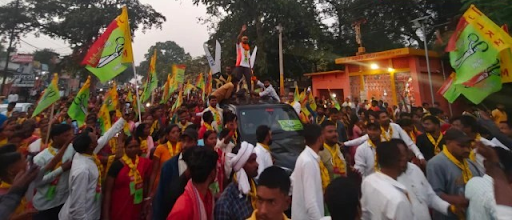



Jharkhand is conducting OBC data collection for urban local body (ULB) quotas under the Supreme Court's “triple test.” This includes forming a commission, setting proportionate reservations, and capping total quotas below 50%. The move ensures constitutional compliance and evidence-based OBC reservations in upcoming ULB elections.

Copyright infringement not intended
Picture Courtesy: INDIAN EXPRESS
Jharkhand collects OBC data under Supreme Court's "triple test" to finalize urban local body quotas.
Jharkhand is working to set fair reservation quotas for Other Backward Classes (OBCs) in its 48 urban local bodies (ULBs), like municipal corporations and councils. To do this, the state has collected data on OBC populations across all districts.
This data collection is the first step of the Supreme Court’s “triple test,” a three-step process to ensure OBC reservations in local elections are constitutional and equitable. The state is now preparing to analyze this data to decide how many seats OBCs will get in upcoming ULB elections.
The Supreme Court introduced the “triple test” in the 2021 case Vikas Kishanrao Gawali v/s State of Maharashtra to guide states in providing OBC reservations in local body elections. It ensures reservations are based on evidence, not arbitrary decisions.
Form a Dedicated Commission => The state must create a special commission to study OBC backwardness in local bodies. This involves collecting detailed data on their socio-economic and educational conditions.
Set Reservation Proportions => Based on the commission’s findings, the state decides how many seats to reserve for OBCs in each local body. The reservation must be proportionate to the OBC population and avoid being excessive.
Keep Total Reservations Below 50% => The combined reservations for Scheduled Castes (SCs), Scheduled Tribes (STs), and OBCs must not exceed 50% of the total seats in local bodies.
The process ensures fairness and aligns with constitutional mandates under Articles 243D(6) and 243T(6), which allow reservations for backward classes in panchayats and municipalities, respectively.
Must Read Articles:
SC JUDGEMENTS ON RESERVATION LIMIT
DEBATE OVER RESERVATIONS AND SOCIAL JUSTICE PRINCIPLES
DEBATE: RELIGION-BASED RESERVATION IN INDIA
RELIGION AS RESERVATIONS CRITERIA
Source:
|
PRACTICE QUESTION Q. While reservations aim at inclusivity, they sometimes lead to social fragmentation. Analyze how caste-based affirmative action affects national integration and social cohesion. 250 words |






© 2026 iasgyan. All right reserved